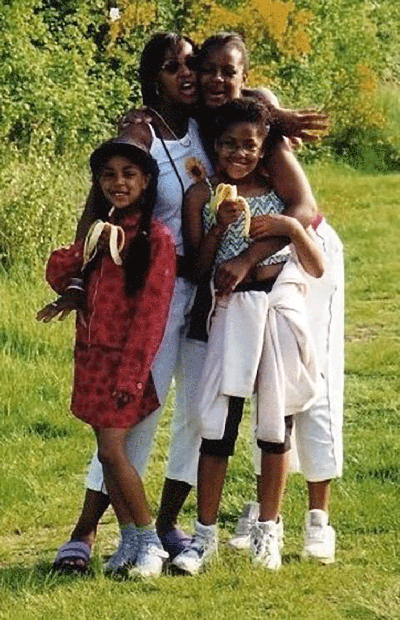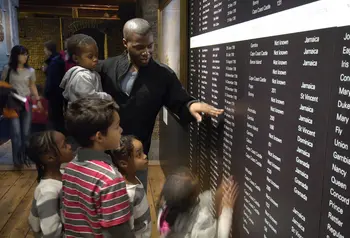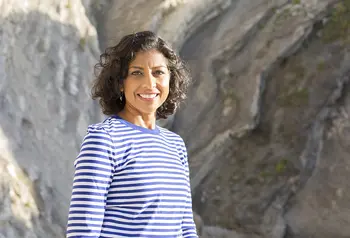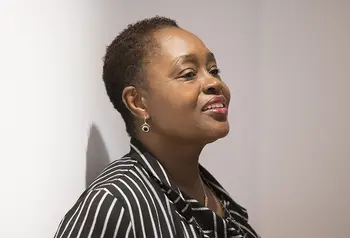Breaking down barriers to nature for young Black people
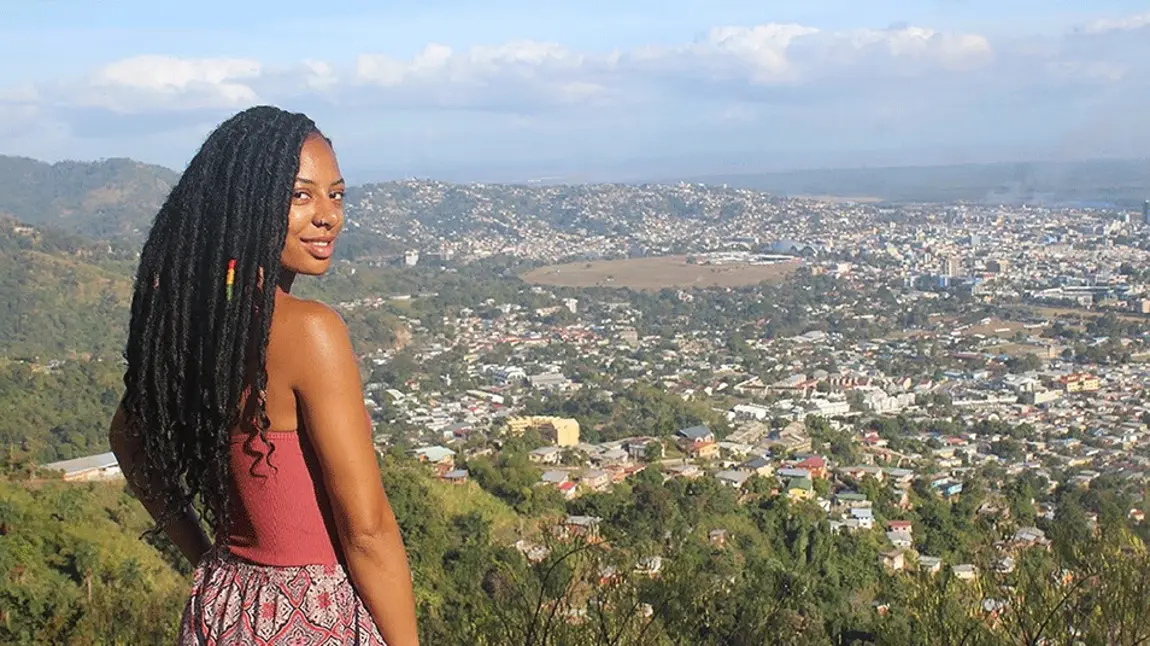
Page last updated: 13 July 2022
The environment is not exclusive, in fact its very essence is inclusive.
Not only because it is quite an unusual career choice, but because I’m a young Black woman aspiring to do what some people in both Black and non-Black communities might consider to be a “White thing” to do.
Thankfully, that hasn’t deterred me. But it could be very damaging and discouraging for other young Black people who might want to follow a similar path.
I’m 26 years old, I was born in South Yorkshire, but have lived in Greater London most of my life. My heritage is African-Caribbean. I’ve been in awe of the natural world ever since I can remember and my mum and sisters have always encouraged and supported my enthusiasm, which helped me to get where I am today – even when I felt like the oddball of the family.
My journey to the wildlife sector
There was definitely a lack of Black people in the environmental spotlight. It was only as I got older, that I realised the extent.
I aspired to work in wildlife conservation when I learned that it was a viable career by watching documentaries and doing my own research. Major inspirations were, Sir David Attenborough, Steve Backshall, Gordon Buchanan and Dr. Andrea Marshall. But there was definitely a lack of Black people in the environmental spotlight. It was only as I got older, that I realised the extent of that as a problem.
In 2016, I graduated university with a First-Class honours degree in Animal Behaviour and Wildlife Conservation. I was hoping to find a job in the environmental sector, but kept falling short of having enough experience or I wouldn’t even get a response back from graduate scheme roles.
Volunteering is always heavily pushed as one of the sure ways to get into the sector, but I often found I couldn’t afford to dedicate my time to it. There were internships and placements that I desperately wanted to apply for, but couldn’t because they were either unpaid, offered expenses that couldn’t support me, or weren’t flexible enough for me to work a paid job alongside. In an already competitive industry, I was at even more of a disadvantage than my peers.
There were times when it made me think that perhaps I didn’t belong in the world of wildlife conservation.
The Keeping it Wild project
One day I spotted the paid traineeships offered through London Wildlife Trust’s Keeping it Wild project, which launched in late 2018. The project is delivered in partnership with London Youth, Headliners UK and John Muir Trust, and is funded by The National Lottery Heritage Fund.
The traineeship seemed to be everything I needed to gain more practical conservation experience, whilst being paid (which was rare), and getting to work for London Wildlife Trust.
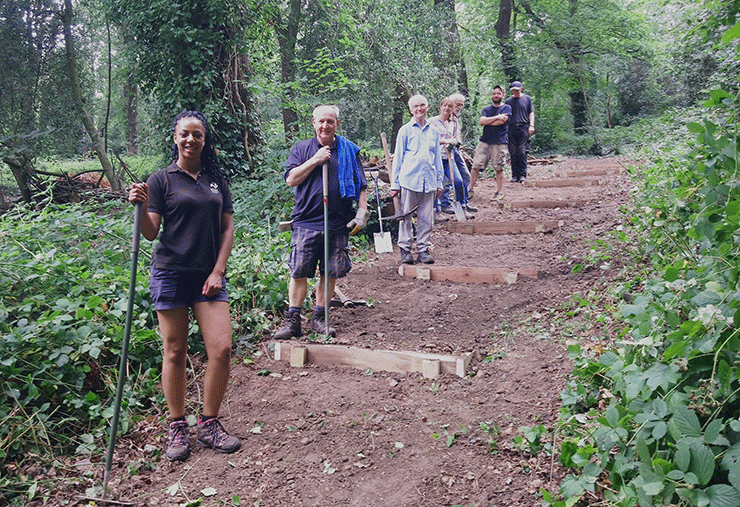
The emphasis on encouraging people from under-represented backgrounds (particularly young people from Black, Asian and minority ethnic backgrounds) into the sector stood out for me because I knew it was a White-dominated sector. The recognition of the disproportionate lack of Black and Asian people in the sector, and actively trying to change that, was special.
I applied for the third trainee cohort and was successful, which was beyond exciting! The three months that followed were so eye-opening and life-changing for me.
As my traineeship was coming to an end, a vacancy at London Wildlife Trust opened up. I was encouraged by colleagues within the Trust and by my family to go for it, though I was doubtful I’d have enough experience. But lo and behold, I got the position!
The recognition of the disproportionate lack of Black and Asian people in the sector, and actively trying to change that, was special.
I am now one of two Great North Wood Project Officers at the London Wildlife Trust. The project focuses on woodland restoration and community engagement in south London’s Great North Wood landscape, and it is also funded by The National Lottery Heritage Fund. It’s a beautiful mix of interacting with people and wildlife, and it’s wonderful!
For me, the beauty of the Great North Wood is its existence in an urban setting, making it possible to walk off a busy road and be suddenly surrounded by the calmness of trees and the melodies of birds – it’s magical!
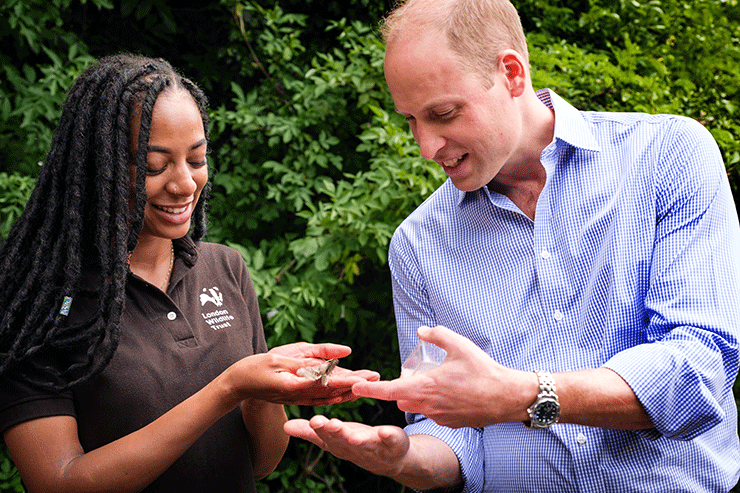
Black people connecting with nature
There’s sometimes a blanket narrative that Black people aren’t interested in wildlife and conservation, which is an extremely ignorant assumption to make. Of course it might not be everyone’s cup of tea, and I don’t profess to speak for all Black people. But I can say with confidence that Black people are interested in the environment, and I am a testament to that.
"Nature is for all and we should all be free to experience it positively."
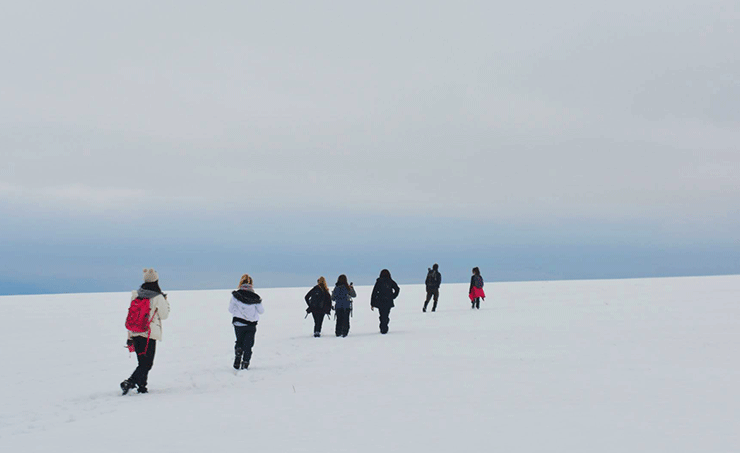
I believe that for Black people, being at one with nature is ancestral and it is a connection that is inherently within us. Being in nature helps to nurture an aspect of self-identity and belonging in the world, despite the many messages that tell us we don’t belong. Climate Change is already adversely impacting our ancestral homelands in ways that it might not immediately be affecting areas in the “western world”. As people of the African diaspora, it is important to be aware of that.
Given that Black communities are at comparatively higher risk of poor mental health, for many reasons that often come down to a succession of systematic inequality, access to nature can serve as a coping mechanism and a tool for boosting wellbeing. It’s therefore super important for that connection to nature to be encouraged from a young age.
Having worked with young Black people through my role at the Trust and beyond, I’ve witnessed instances where negative perceptions of nature turn to enthusiasm and wonder when individuals are given the opportunity to experience it.
Nature is for all and we should all be free to experience it positively.
Encouraging young Black people into green spaces
I can’t possibly speak for everyone’s experiences, but I would say, in general, Black people are not widely encouraged to connect with nature from a young age.
I spoke to someone recently who linked this back to when our relatives, like those of Windrush generation, came to the UK from the Caribbean. Many were forced to live in socioeconomically-deprived areas, “concrete jungles”, which in turn had less high-quality accessible greenspaces than more affluent areas.
Combined with the pressures and negativities that came with being introduced to a largely racist society, this eventually contributed to a severance with nature. For a lot of parents and guardians, encouraging a connection with nature became impossible, or certainly lower down on a long list of other priorities.
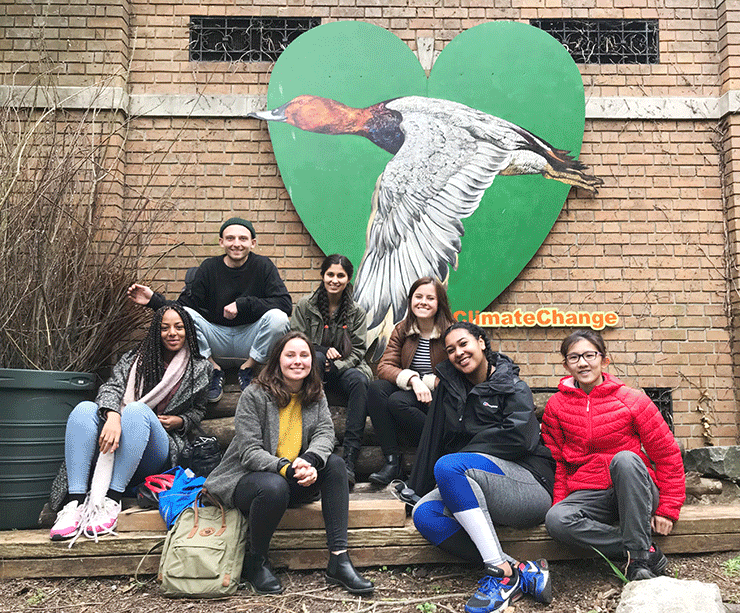
Speaking to my own mum, she said that when she was growing up, nature was mostly associated with the countryside, which was seen as very elitist. To an extent, this is still the case.
Engaging with nature can also be perceived as a pointless endeavour if there isn’t a way to generate income in the way that more “traditional” career choices do. For people who are at the mercy of an unbalanced society, financial security may be more of a priority than having the freedom to explore nature at leisure.
We should all respect each other’s ways of engaging with nature, and educate ourselves on why it is harder for some to engage than others.
This can be perpetuated by the education system too, which often doesn’t serve young Black people’s needs as it could, and many young people aren’t given the resources or support to be able to connect with nature.
We should all respect each other’s ways of engaging with nature, and educate ourselves on why it is harder for some to engage than others. Then go from there to find solutions to these often-societal issues.
Career barriers
It can make it hard to feel comfortable enough to be myself in a work setting – something that is exacerbated by constantly being in White-dominated spaces.
Other people’s various negative perceptions and scrutiny of a young Black girl wanting to be a wildlife conservationist didn’t throw me off course in the end, but they did chip away at my self-confidence. There were times when it made me think that perhaps it wasn’t the right direction for me and perhaps I didn’t belong in the world of wildlife conservation.
To this day, I’m still working to overcome imposter syndrome, which can be overwhelming at times. It can make it hard to feel comfortable enough to be myself in a work setting – something that is exacerbated by constantly being in White-dominated spaces.
I’m always thinking of ways that I can help to open more doors for other young Black people. It can be quite draining on top of just trying to live my life sometimes, but it has to be done. I volunteer with Action for Conservation, an organisation that is amazing at reaching young people from all backgrounds. I also love to discover Black-led environmental organisations and groups such as, Flock Together, POC in Nature, BAME Nature Group, Black Girls Hike, Land In Our Names and so many more!
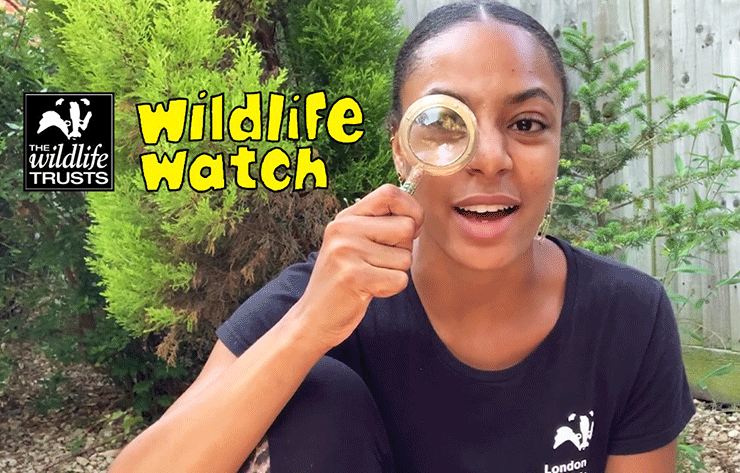
Advice to the sector
The environment is not exclusive, in fact its very essence is inclusive. Young Black people have so much to give and we are well within our rights to claim spaces in this sector and make positive contributions to it. But the environmental sector needs to focus on dismantling the barriers that stop young Black people from accessing it.
It is not enough just to engage with young Black people and leave it at that. That doesn’t meet the long-term needs of those individuals, nor the sector that is crying out to be diversified for its survival.
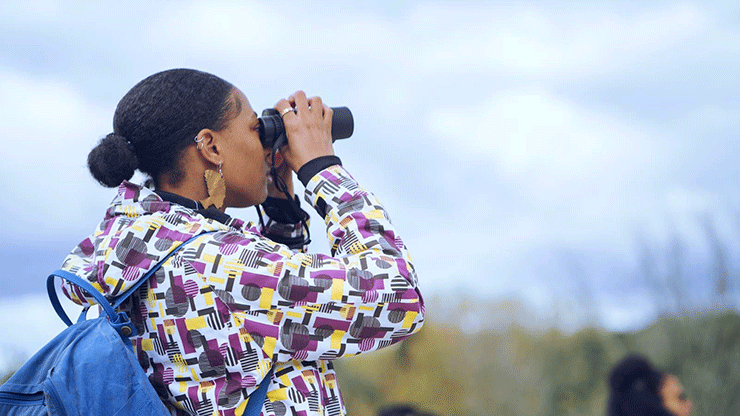
It is not enough just to engage with young Black people and leave it at that, with boxes ticked and quotas filled. That doesn’t meet the long-term needs of those individuals, nor the sector that is crying out to be diversified for its survival. In order for people on the outside of the sector to see that a career in the environment can be for them, they need to see people who look like them.
Change is coming and there are more and more young Black people shining their light within the sector. There are so many amazingly inspirational “Black-tivists” and allies that are paving the way, and they empower me.
Advice to young Black people
As organisations do what is right, there will be more opportunities for you to make your own impact, and you certainly aren’t alone.
It’s not possible to save our natural world and exclude Black people at the same time.
We are facing a climate crisis that needs all hands on deck and that means young Black people too. It’s not possible to save our natural world and exclude Black people at the same time. So even if you are the only Black person in the room, you belong there just as much as anyone else and your voice is just as important as anyone else’s.
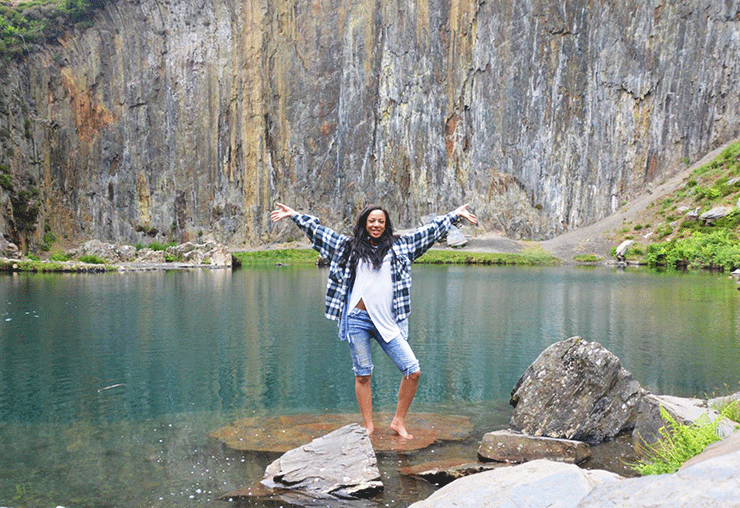
More from Chantelle
If you want to see more from Chantelle, you can watch some of her Wildlife Watch videos or catch her cameo appearance with Prince William in the ITV documentary, A Planet for Us All.
